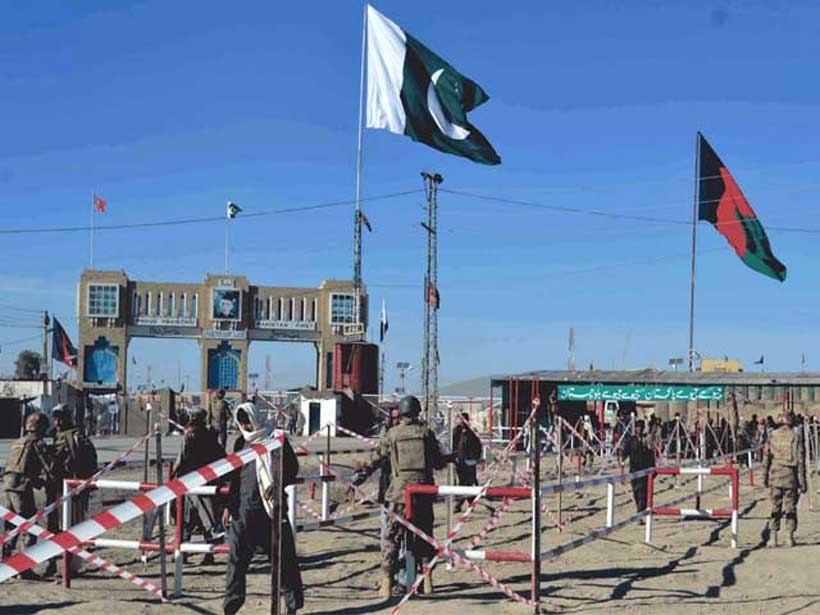The history between Pakistan and Afghanistan has been marked with suspicion, lack of equality, and missed potential, especially in recent history. It is in diplomacy, as in life, that there are occasions in which the sound of a gesture carries its message above the sound of the past. Such an opportunity is provided by the recent expression of the Deputy Spokesperson of the Islamic Emirate, Hamdullah Fitrat. The fact that he promises that the Afghan soil would not be used against Pak and asks that both neighbouring countries work together economically and in the field of diplomacy shows that things are getting on the better side and both need to respect and coexist. In a world that has long found itself in reactive security positions, the language of restraint and responsibility holds the prospect of a more reflective world.
Of course words are not in themselves an end. However, when said clearly and with intention, as Fitrat did speak, they may pave the way toward another type of relationship. There was a kind of political ease in his tones, such as crowds of today do not have. Such a developing dialogue can potentially assist the two countries to do away with such zero-sum logic that has been a dominant feature of their interaction all along. The bonds of trust that have been damaged by war and proxy politics need to be re-established cautiously, and lighting shouldn’t further be established on sentimentality but on sustained interaction based on mutualistic interests. The readiness of Kabul to reinstate ambassadorial-level relations with Islamabad is a good indication of good intention. It will be a reversion to formal diplomacy and architecture, which can substitute on a more permanent basis episodic contact with persistent dialogue. Although such measures appear technical at face value, they play critical roles in the creation of atmospheres of trust. A dialogue at this level facilitates a constant exchange of ideas, grievances, and solutions, and both countries find it easier to work out the misunderstandings before they toughen into grievances. During diplomacy, the big moves are seldom as successful as the small moves that are made regularly and highlight long-term success.
Even a new focus on regional economic connectivity, especially on such projects as the Turkmenistan-Afghanistan-Pakistan-India (TAPI) pipeline, introduces a strategic depth into the changing alliance. Development corridors are not mere energy and trade routes; rather, they consist of architectures of common fate. By supporting such initiatives, Kabul accepts the vision of interdependence under which prosperity rather than suspicion characterizes relationships within the region. This indicates a pragmatism that is familiar to Pakistan as the longing to perceive an economic integration as the stabilizing factor in South Asia.
Similarly important is the fact that Afghanistan is aware of the role played by Pakistan in making it possible to trade with the rest of the world. This kind of recognition shows a coming of age of the need that geography and goodwill must be compounded. Trade, as trust, is established on unblocked channels—physical, political, and psychological. It will be important to foster this interdependence by establishing effective policy models and simple communication to help turn transactions into strategic partnerships. The positive edge that Kabul has taken on in complicated humanitarian issues, especially the refugee issue, is perhaps the most promising. For a long time, displacement politics has been a contentious affair. It is important to note that when treated together, it will turn into the venue of institutional collaboration. Collective action is needed in the nature of managing refugees, beyond policy based on reactions, but a compassionate and progressive construction that treats human beings at the centre of all boundaries as deserving of dignity. As the two countries can testify, the plight of refugees generally reflects the sense of right or wrong the state carries.
Goodwill will have to be accompanied by action. History can provide us with a sufficiency of instances of lost opportunities for organization or dissimulation. The actual challenge of these new overtures will be in the translation to the ground realities, particularly solving the much-desired security concerns of Pakistan about the cross-border militancy. Provided the efforts of Afghanistan are followed through on a regular basis, and further provided that Pakistan acts with restraint and in the vein of positive diplomacy, there is a chance of a new era of cooperation in the region.
Pakistan, on its part, is also dedicated to the relation, which is founded on mutual respect and equality of sovereigns. The voice of Kabul can give an unusual chance to formulate the shape of this relationship, not in the reflections of the past wars but in the image of peace and development. The world will be looking on, but in the end it will be the latter that will determine how this story should be written with bravewisdom by both Kabul and Islamabad. In geopolitics there are times when history turns softly, without tumult but by the turning of a phrase of expression, a change of one word and phrase. This can turn out to be one of such instances. It extends an opportunity to the two countries to shed off the gravitational force of their history and, gradually and together, step forward towards a future anchored on trust. In the fragile structure of peace, truth and imperturbability are more powerful than power and the ultimate position of judgment wisdom, which man swiftly restrains himself with regard to another.
